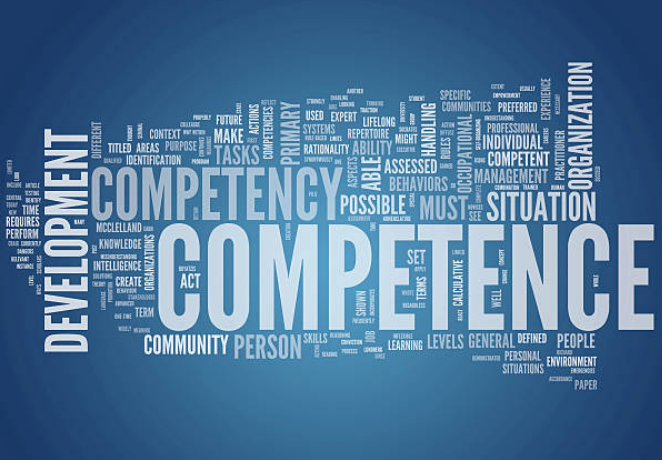
Competencies to Measure Authentic Leaders By Dr. John C. Reynolds

4 Critical Competencies Used to Measure Authentic Leaders
Generally, authors in the leadership literature simply recognize an authentic leader through the leader’s intentional process of positive actions that encourage transparent and open decision-making. The authors Goffee and Jones in their book, Why Should Anyone Be Led by You? pen my favorite definition. Goffee and Jones say simply that,
“Authentic leaders display consistency between their words and their deeds.”
As leaders, we know this is rewarded with trust, honest relationships, loyal followers, and a laser-like focus and passion to forward the purpose and mission of our organizations. So if this is the solution, how best might we move forward in executing this in our daily roles in leadership? How do we measure our progress towards being authentic as leaders?
Measurement for Authenticity
Several years ago, a number of social science researchers developed an instrument measuring the authenticity of a leader (Authentic Leadership Questionnaire, ALQ, Mindgarden, Inc., 2007). As a leadership tool, it has been used with many different demographic groups, industries, ages, and ethnic groups. In academic terms, we would say this is a reliable and valid instrument. The beauty of the instrument is that it measures only four areas of competency, which provide a manageable framework for describing quantitatively the authentic leader.
Balanced Processing
Balanced processing is the ability of the leader to participate in a collaborative exchange utilizing a relatively unbiased form of information filtering that reduces the distortions of ego, exaggeration, emotion, and ignorance in a team. Authentic leaders — self-regulated and strong in their self-identity — can lead teams without getting their ego involved or asserting undue influence as a leader (for example, powering up), but rather provide a balanced and informed perspective to the process.
The motivation of authentic leaders is not title or power, but rather confidence in whom they are as individuals. Authentic leaders naturally lead team meetings where members feel heard and valued. The process may not lead to any one individual’s initial position, but all leave knowing that the process and their contribution resulted in a better solution for the organization.
Internalized Moral Perspective
Internalized moral perspective reflects the behavior of leaders as exhibited by their own self-awareness — and resulting regulation of these internalized values — in contrast to bowing to the external pressures of external stakeholders and organizational culture. Authentic leaders are principled and these principles are evidence of what they believe.
Board pressure or promises of recognition and rewards do not sway them from leading from a position of what they believe and who they are.
Self-awareness
Self-awareness is that special understanding an individual derives from gathering personal circumstances and experience, and contextualizing them so that they influence one’s worldview. This is a reflective and ongoing exercise that involves a review of successes and failures: specifically, life-changing events or trigger moments where there has been crisis or deep emotional learning or change.
Authentic leaders not only take time out to reflect and learn, but are intentional in determining how this reflection and learning can be utilized to help them become better leaders in the future.
Relational Transparency
Relational transparency refers to a leader’s actions that display the individual’s self-identity or true self to others. This genuine style of relating or communicating one’s true thoughts and feelings — speaking in truth and love — promotes trust and well-being with followers. Followers feel valued and empathize when they know that their leader is not perfect and there is no “veneer” — this is how they are, for better or worse. Of course there is always the danger of transparency becoming inappropriate or emotional — Facebook has shown us that!
Self-evaluation
Together these four components may describe best the areas to consider when evaluating oneself as an authentic leader. In summary, authentic leaders intentionally lead from deep personal values and convictions motivated by a genuine desire to build trust, credibility, and the respect of their followers through their leadership.
King David of Israel was not perfect, but he was, I believe, authentic. We, in our roles as leaders today, are not perfect, but I know we each want to be authentic. The challenge of course is that not one of us can declare ourselves to be authentic; this is a mantel that only others can lay on our shoulders. Take some time out soon to reflect on these thoughts on authentic leadership.
How do you think you “measure up?
####
Dr. John C. Reynolds is the first president of Los Angeles Pacific University. A regular speaker at national conferences throughout the world, he has also consulted in more than 40 countries and traveled to more than 80 countries to speak, consult, and advise national NGO leaders.

Discover a place where a leader like you belongs.

What is Christian Leadership Alliance?
Christian Leadership Alliance equips and unites leaders to transform the world for Christ. We are the leaders of Christ-centered organizations who are dedicated to faithful stewardship for greater kingdom impact.
Sign up for FREE blog updates.
Upcoming Events
Check back later!


